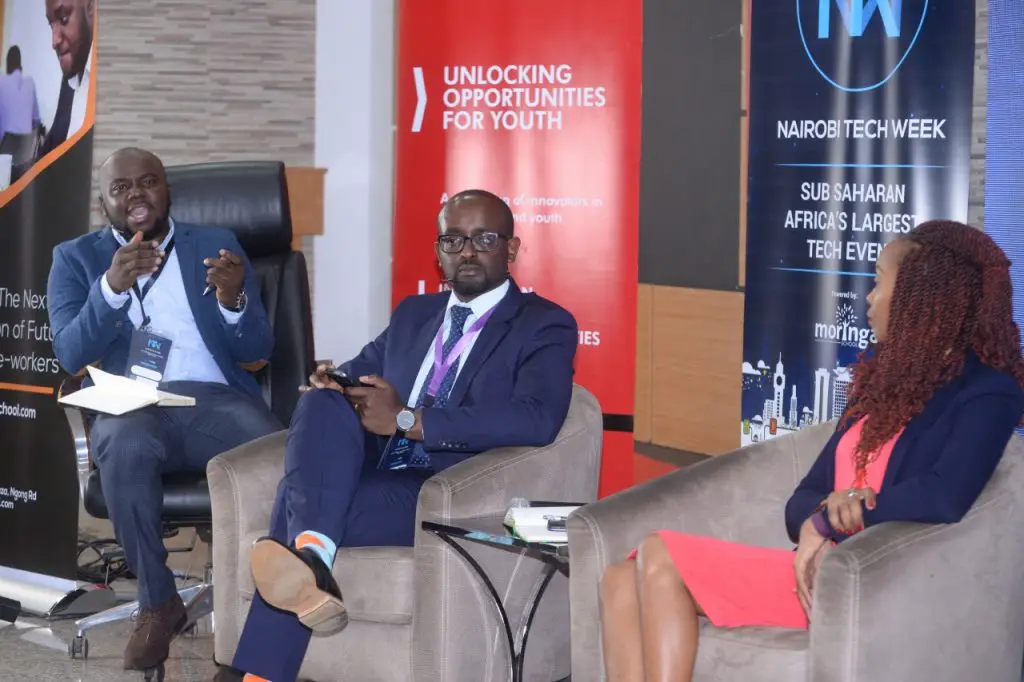By 2022, the value of Kenya’s and Uganda’s ICT sector is projected to be US$1.7 billion and US$1.33 billion, respectively.
The 4th edition of Nairobi Tech Week (NTW2019), has launched the IT Skills Gap Report.
The report entitled The Development of IT Skills and Jobs in Kenya and Uganda, provides insights and recommendations on what Kenya and Uganda need to do in order to fully benefit from digitalisation.
The Report which is a collaboration between Mercy Corps and Moringa School explores the sources, nature and size of the existing IT skills gap in Kenya and Uganda. The importance of the Report is compounded by the well-documented growth of and joblessness within Africa’s youth population.
Stacey Ondimu, Country Director Moringa School noted, “Providing our youth with the right skills, will help us address one of the key barriers to the growth of Africa’s tech sector. The Report should help IT professionals understand trends in skills demand, and employers understand and appreciate tech’s role in their businesses.”
The Report examines existing IT skills amongst IT professionals and compares them to the skills demanded by local and international employers, now and in the future. It is based on interviews with employers, educators, IT professionals, and entrepreneurs, and incorporates market forecasting and supporting desktop research.
By 2022, the value of Kenya’s and Uganda’s ICT sector is projected to be US$1.7 billion and US$1.33 billion, respectively. Though digital jobs have the potential to create significant opportunities in Kenya and Uganda, there is a shortage of IT professionals, which is expected to grow.
In Kenya, analysis of advertised jobs reveals developers to be in highest demand. More than 50% of postings seek mid-level applicants with 2 – 5 years’ experience; only 2% seek entry-level candidates. In Uganda, almost half of IT-related job postings were for administrative IT roles. Just 13% were for developers. Kenya’s IT sector is more advanced and the current Ugandan policy and regulatory environment deter investment.
All stakeholders who participated in the report agreed that the current formal educational system is a major contributing factor. In Kenya, 40% of survey respondents resort to teaching themselves, while many Ugandans take online IT courses offered by international training and certification providers to increase their chances of employment.
All Ugandan employers who were interviewed mentioned Ugandan graduates not only lack hard skills, but also the soft skills needed for effective service delivery.
Interviews also suggest that many employers still do not fully understand what IT entails, and by extension, businesses often do not know who to hire, the skills needed, and how to deploy them effectively. In Kenya, the number of IT professionals in employment will grow to 95,000 in 2022 from 57,000 in 2017. In Uganda, over the same period, these figures will grow from 28,500 to 43,400.
In 2022, it is expected 17,671 higher education students will graduate with IT qualifications in Kenya and 3,222 students in Uganda. These numbers will not address our IT skills gap.
Gituku Ngene of Mercy Corps says, “We think the Report helps both universities and specialist IT schools in Kenya and Uganda understand what they need to do, to address the needs of the private sector. If they adapt curricula to reflect industry needs, add the practical application of theoretical concepts and mix in soft skills, they are well on their way to equipping our youth to fully participate in the fourth industrial revolution.”
